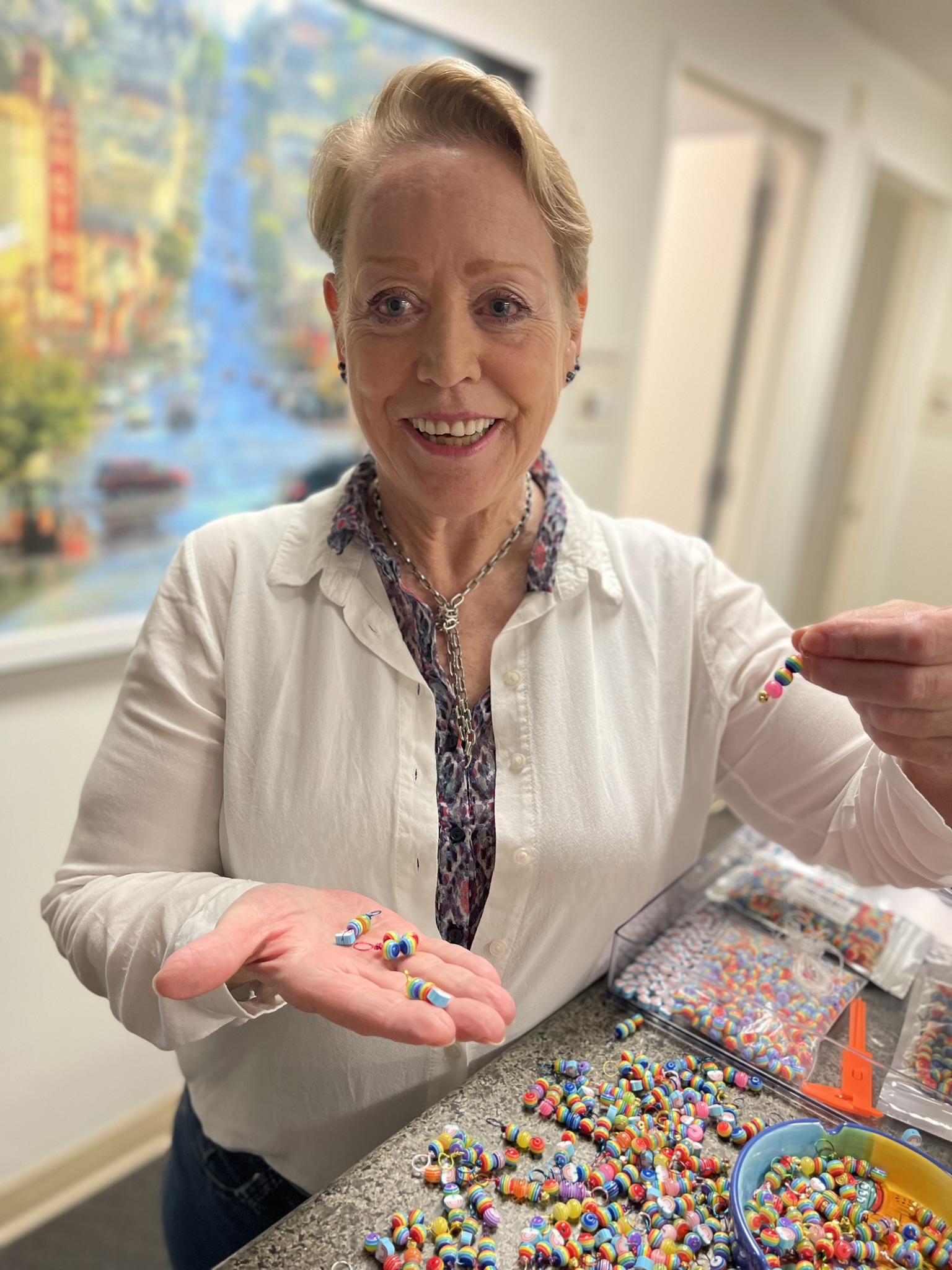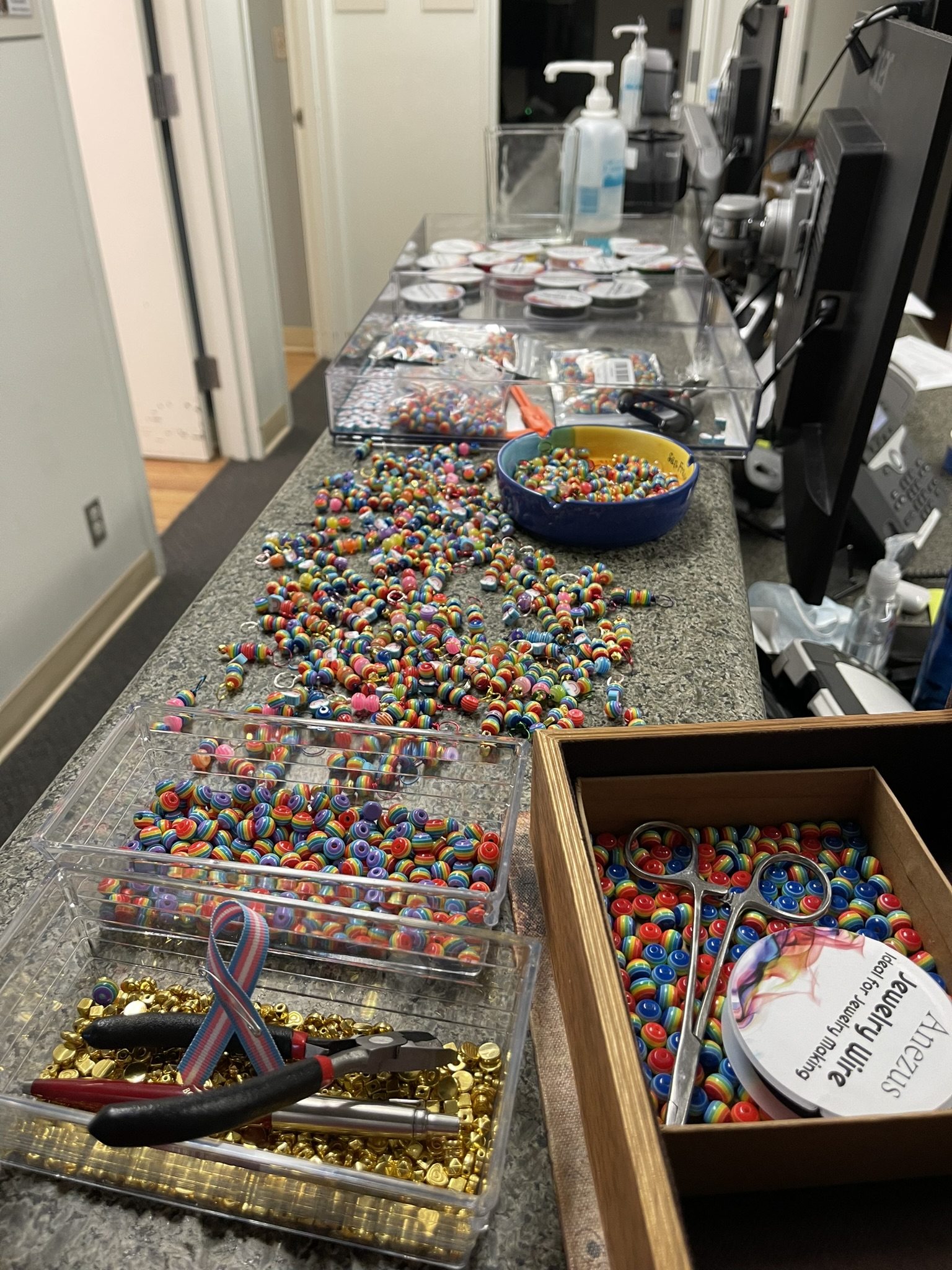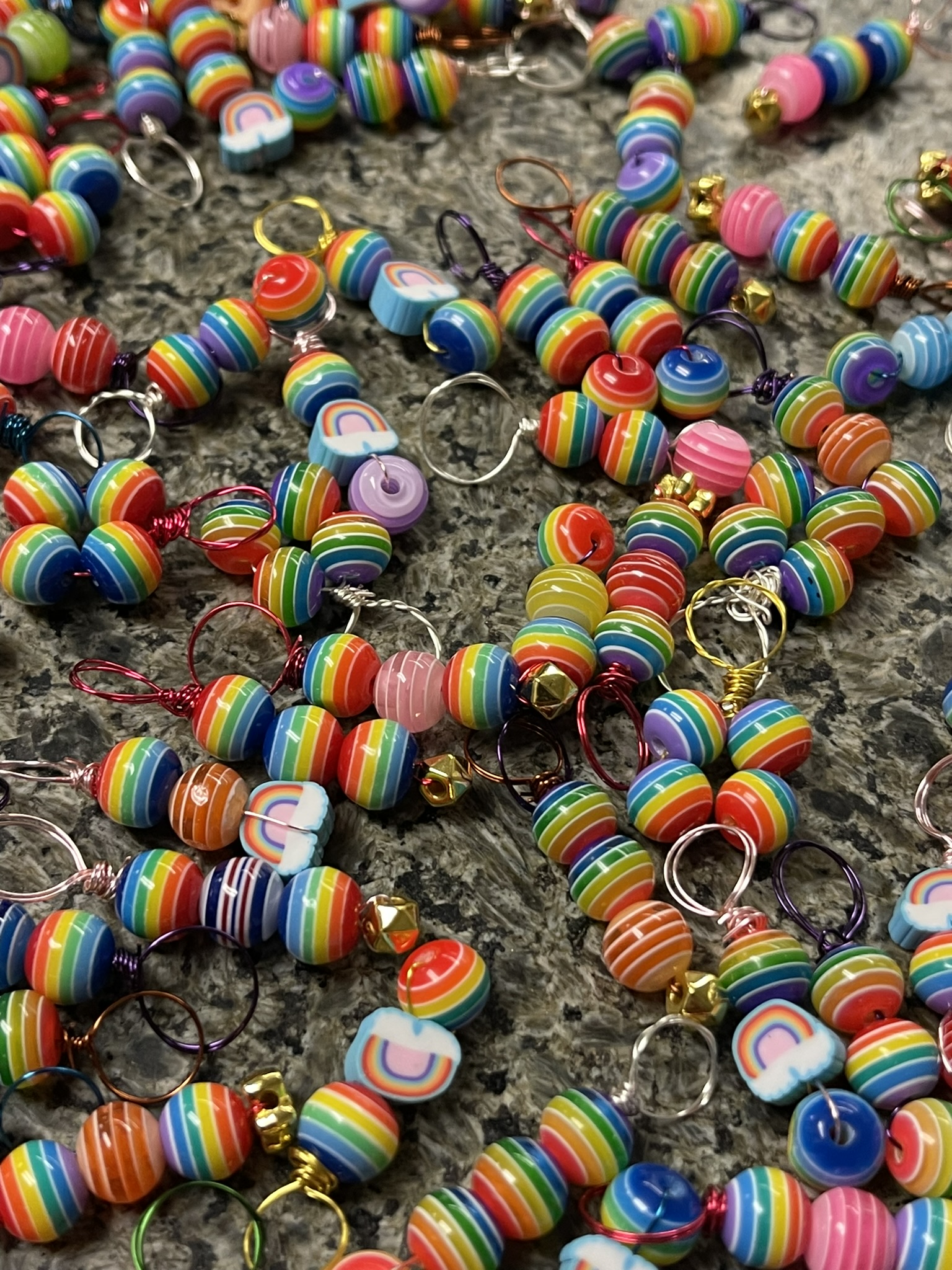Debbie Graves insists her fingers aren’t tired. The patient services representative at Sutter’s Castro Street Primary Care in San Francisco has been busy making hundreds of rainbow-themed baubles for the city’s Pride Month. She says offering the colorful charms to patients brings her joy and fosters a sense of community among the center’s largely LGBTQ+ population.
“When I offer the mementos, I speak about how important our community here is,” Graves says.

Debbie Graves is a long-time patient services representative at Sutter’s Castro Primary Care in San Francisco.
For LGBTQ+ people, access to safe and inclusive healthcare is not a guarantee. Many LGBTQ+ individuals report having negative interactions while receiving care, citing provider discrimination, ignorance or even blame for their visit.
A National Institutes of Health study finds the limited number of clinicians trained in LGBT health needs remains a barrier for LGBTQ+ people in having positive, respectful healthcare experiences, a fact which is not lost on Graves.
“Every patient who meets me, I try and make sure they know they are safe and can trust me to be their patient advocate. I will go out of my way to help them, no matter how pleasant or unpleasant they may be. This is how I want them to feel every time they come in,” she says.
Times have not always been rosy for the LGBTQ+ community.
Where Graves works at the Sutter location, which is situated in San Francisco’s Castro District, the care site began primarily as a HIV/Sexual Medicine Clinic. In the early 1980s, San Francisco was an epicenter of the AIDS crisis, with the Castro neighborhood being one of the hardest hit communities. The neighborhood saw tens of thousands of AIDS cases with many people succumbing to the virus in the 1980s and early 1990s. Before much was known about the virus and how to properly treat it, AIDS/HIV fueled stigma, fear and discrimination against gay people. Negative stereotypes have been hard to shake for LGBTQ+ people even decades later; although, progress has been made for grant equal rights, inclusion and acceptance.
Today, the Sutter care site has expanded greatly and now includes internal medicine, family medicine, HIV specialty, gender care services and several private practitioners and surgeons. Graves says she offers her mementos to every patient.
Watch the KTVU-FOX-2 story on Debbie and her beads here.
Compassionate Caregiving on Display
Buck Ellis, who works for a company that makes HIV medications, has had a front-row seat to Graves’ caregiving.
“Debbie is someone I have known for 20 years and has been committed to patients for even longer,” says Ellis. “Just as I’ve seen the transformation in care for people living with HIV, I’ve seen Debbie’s commitment to this community. She welcomes every patient into the practice and makes people feel cared for and known by name.”
Ellis adds that Graves is a patient advocate in so many ways, with her bead project serving as a prime example.
“It’s a simple way to demonstrate that ‘I am here for you and I care,’” he shares. “Trust me when I say this—I meet many people in healthcare, and the patient-facing person at the front desk of every practice is key. Debbie displays kindness, compassion and commitment to helping people living with HIV thrive. She always takes the time … she cares for people so deeply.”
Fierce Advocate
Like all superheroes with origin stories, Graves says it was her time working under “The Father of Microsurgery,” Dr. Harry Buncke, that opened her eyes to the real possibilities in patient care.

Debbie’s workstation where she fashions each symbolic bauble by hand. She will give out hundreds of the Pride-themed charms to patients during San Francisco’s Pride Month in June.
“Harry was a fierce advocate for his patients and he taught me to be. He never let anything stand in the way of helping patients.”
Dr. Buncke’s approach brought out what was perhaps an innate part of Graves’ personality, which is to say she’s a tried-and-true carer at her very core. It wasn’t out of the ordinary for Graves to give patients a ride home after an urgent procedure. Now, of course, that is no longer allowed for legal reasons. “I compensate by always helping people on campus, whether it’s giving directions, working with their insurance provider or doing whatever they need. They will always get help from me.”
As a daughter of the Marine Corps, as Graves’ father would often say, she says it’s the military branch’s Semper Fedelis “always faithful” motto that has served as her north star for finding meaning in her work and showing compassion.
“Support can be a beautiful thing if you know it’s there. That’s why these beads are important,” she says.
Graves estimates she will give out hundreds, if not thousands, of the Pride charms to patients and their family members this month.
The cost of the vibrant beads comes out of her own pocket, but Graves says now that people know about her craft project, they will stop by with glittery charms or other small pieces of flare to incorporate.
“I am often questioned about why I do this and my first answer is that this is a ‘gift from my heart to your heart.’ And take one for your loved ones, too. Pride is for everyone and we must not let that meaning dissipate.”





